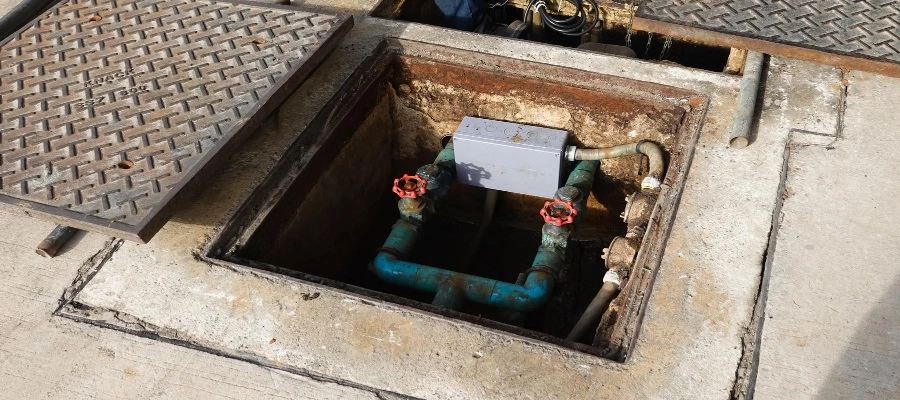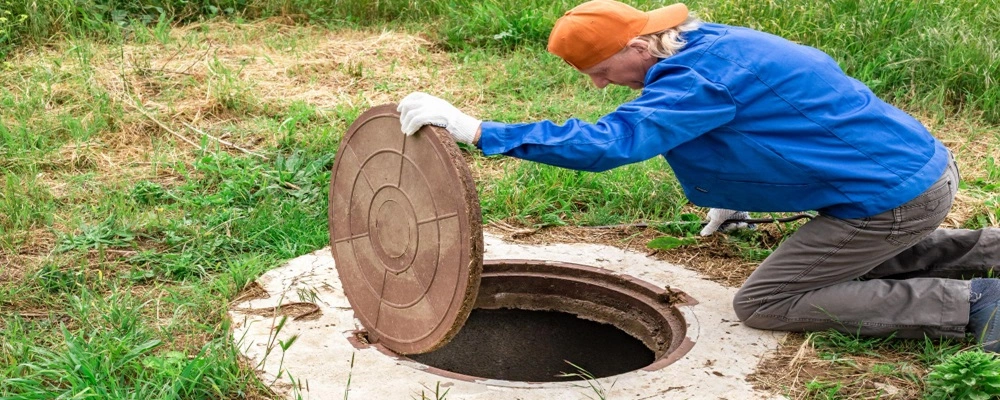Whether it’s a residential or a commercial property, your septic system is the most crucial yet overlooked functional element. Since most homeowners live in large cities, they have septic systems. However, most of them are unaware of the tank’s location. Besides, they are unaware of the steps they need to follow for the health and longevity of the septic systems. Often, you can find mistreatment of the septic systems, especially those failing to manage their water responsibly.
Care and periodic maintenance of your septic system are crucial; otherwise, the component repairs might become costly. Sometimes, problems with your septic system become so intense that you might require replacing the entire system. The cost associated with replacement is ten times the cost of routine maintenance of septic tanks. Proper maintenance means your residence’s septic tank can last between 25 and 30 years.
So, let’s explore the septic system maintenance tips along with the proper understanding of its functioning.
The Functioning of the Septic Tank
The water flowing out of your house is unsafe for drinking. However, it has to go somewhere, and here’s where a properly maintained septic system comes in. If you aren’t connected to the city’s sewer system, the waste generated from your household gets collected to a small community cluster system or septic tank. The general household waste, such as the water used for washing dishes, bathing and flushing the toilet, gets contaminated and leaves your house.
The tank and the drain field are the two main parts of a septic system. Typically made from plastic or concrete, the tank can hold between 1,000 to 1,500 gallons of wastewater on average. The process allows the wastewater from your house to flow into the tank. A settling process occurs inside the septic system where the solid materials separate from the water. Over time, the naturally occurring bacteria break down the sludge layers or the solid waste. The effluent or the excess filtered water exits the tank through perforated pipes. Meanwhile, the heavy solid waste continues to degrade inside the tank.
7 Septic System Maintenance Tips for Your Home
Remember, your septic system is an unsung hero of your home or commercial property. It’s one of those systems that goes unnoticed until something goes wrong. Here are some of the top septic system maintenance tips to keep your septic system running.
1. Keep Your Septic Tank on Routine Inspections
Most people are surprised by the issues with their septic tanks. In most cases, you can identify and repair budding issues before they emerge as real problems. It is possible when you keep your septic tank under routine inspections.
If you have a standard household septic tank, it is ideal to inspect it at least every three years. You will require frequent inspection if you have large properties, commercial buildings, large families, or groups. Regardless of the frequency of inspection, ensure that you hire a septic system professional. They will help you spot warning signs.
2. Set Your Pumping Schedule
Although septic tanks remove some waste materials through their leach field and bacteria, they require occasional pumping. In the case of a residential system, it is ideal to pump your septic tank between three and five years. However, the time for pumping depends on several factors, including the number of family members, the amount of waste your household generates, and the size of your tank.
3. Look What You Flush and Drain
If you have a child at home, you might have experienced them flushing their toys into the toilet and how it backs up your plumbing. That’s not the only thing that one should be concerned about. Flushing certain materials into your septic tank will fill up your tank faster. Besides, these materials often contain toxins that might kill the helpful bacteria living in your septic tank. Some materials that must never reach your septic tank include grease and oil, toxic cleaning products and oil-based paints.
4. Keep Septic Tank Maintenance Records
As everything on your property requires maintenance, your septic tank does, too. You must keep thorough records of its maintenance. This includes recording the date of pumping, filter cleanings, equipment installations, inspections, and repairs, among other things. The information will prove invaluable when your septic tank system professional tries to diagnose a problem in the future.
5. Look How You Dispose Food
Septic tank maintenance is not only about how you care for your tank. Instead, it’s about following the do’s and don’ts with your septic tank. Ensure that you do not put a heavy workload on your tank. Surprisingly, your garbage disposal has a big impact on your septic tank. Unlike most drains and septic sources in your home, your garbage disposal sends solid materials into your septic system. If you want your septic tank not to fill quickly, you must keep your garbage disposal minimal. You can compost the disposed food instead of flushing your leftover food into the toilet.
6. Understand Your Drain Field
The drain field or leach field is a crucial part of the septic system, allowing your septic tank to dispose of materials correctly. To keep the leach field intact, minimize the pressure and weight on the area. Too much pressure might damage the equipment. Whether you installed or bought a new septic tank system after purchasing the house, the first thing you must do is locate the drain field.
Do not park vehicles or build structures on the drain field. Also, do not plant trees on the drain field, as the roots will grow and interfere with the system. To prevent excessive water saturation in the leach field, place your sump pumps and rainwater drainage systems away from the area.
7. Keep An Eye on Your Lawn
Even your pretty lawn alerts you when there’s an issue with your septic tank. Ensure that you know the location of your septic tank and look for any changes in the grass of the area. Do you notice spots that are more lush or dense than other areas? It could be a chance that your septic system is leaking. The materials from the tank are fertilizing the nearby grass. It’s a red flag, and if you ever find it, be sure to seek the help of a professional.
Importance of Septic Tank Maintenance

Environmental Protection
A faulty septic system can release bacteria, viruses, and chemicals into local waterways, which can lead to public health hazards. Proper maintenance of your residential or commercial septic tank ensures that the contaminants are safely processed before reaching the environment.
Prevents System Failures
Regular inspection and pumping of septic tanks prevent solid buildup that might lead to system failures. The EPA suggests that your septic system undergo inspection by professionals at least once every three years. You must also be sure to pump the tank every three to five years when necessary.
Cost Savings
When you ignore maintenance of your septic tank, it might lead to expensive repairs. Alternatively, you might require a complete system replacement, causing a hole in your pocket. With regular maintenance, you can avoid these costs and boost the life of your property as you ensure the proper functioning of the septic system.
How Much Does Cleaning Septic Tank Cost in India?
The cost of cleaning septic tanks in India varies from one region to another and from one service provider to another. Typically, it ranges between INR 2,000 and 10,000. However, it depends on various factors. These include the following:
1. Tank Size
Your septic tank’s size stands as a major determinant of the cost. Large tanks require more size and effort to clean, resulting in higher costs.
2. Depth of the Tank
The depth of the tank also affects the cost of cleaning. Deeper tanks require specialized equipment and safety measures, so the cost of cleaning such tanks is higher.
3. Your Property’s Location
Another factor varying the cost of your tank is your property’s location. If your property is in a remote or less accessible area, getting the necessary equipment and personnel to the site might become expensive.
4. Difficulty in Accessing
Often, the professionals have trouble accessing your tank. This happens when you bury your septic system under concrete and extensive landscaping. It might require additional labour and equipment, increasing the cost.
5. Frequency
If you have not cleaned your septic tank for a long time or if it is clogged, it might require severe cleaning efforts. In such a scenario, cleaning your septic system becomes extensive.
6. Additional Services
Often, service providers offer additional services as part of their package. These include inspecting and repairing minor system issues, which affect the overall cost of cleaning your tank.
If you are looking for an accurate estimate for a septic system cleaning service, it’s better to contact local septic tank cleaning companies and request their quotes. Ensure that you provide the professionals with detailed information about your septic system, including its size, location, and any specific issues you experience. This will help the service provider offer you a more precise cost estimate for cleaning your septic tank.
Conclusion
Even though you do not think about your safety tank every day, it performs a critical job for your house and business. Since your septic tank is an essential part of your daily life, it’s essential to maintain it. Ensure to pump your septic tank regularly, or at least once every few years, depending on its size and your family members. Following these best septic system maintenance tips ensures your septic tank works for years. As a reputed construction firm in India, Brick & Bolt offers complete service related to your dream home. With their professional team of experts, you get real-time tracking, regular updates, the latest floor plan designs, efficient communication and quality checks on your projects from the first day until the completion of the project. Do you believe and follow Vastu principles? Brick & Bolt will place your septic system following the Vastu guidelines for optimum positive energy flow in your home.

